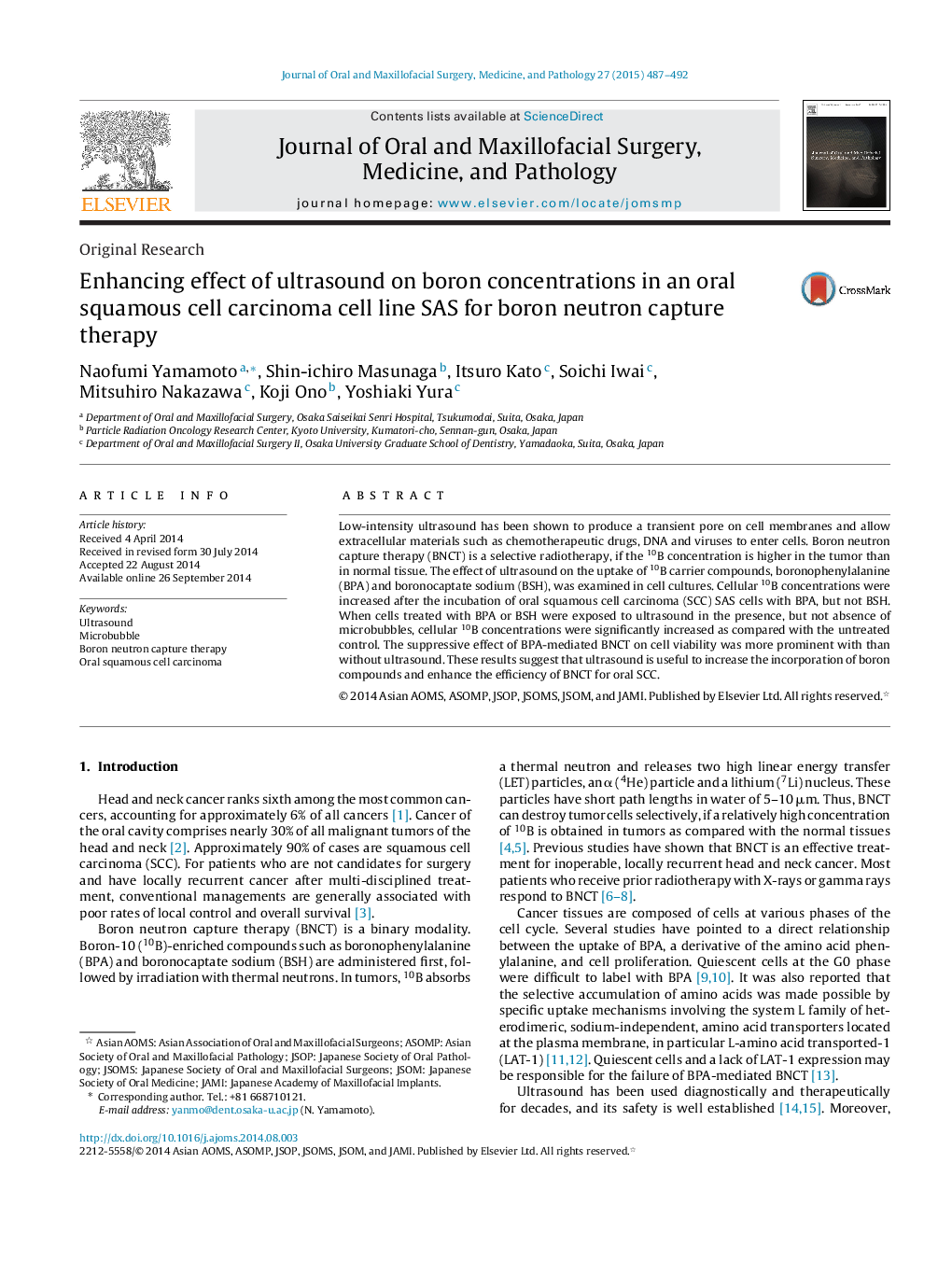| Article ID | Journal | Published Year | Pages | File Type |
|---|---|---|---|---|
| 3159773 | Journal of Oral and Maxillofacial Surgery, Medicine, and Pathology | 2015 | 6 Pages |
Low-intensity ultrasound has been shown to produce a transient pore on cell membranes and allow extracellular materials such as chemotherapeutic drugs, DNA and viruses to enter cells. Boron neutron capture therapy (BNCT) is a selective radiotherapy, if the 10B concentration is higher in the tumor than in normal tissue. The effect of ultrasound on the uptake of 10B carrier compounds, boronophenylalanine (BPA) and boronocaptate sodium (BSH), was examined in cell cultures. Cellular 10B concentrations were increased after the incubation of oral squamous cell carcinoma (SCC) SAS cells with BPA, but not BSH. When cells treated with BPA or BSH were exposed to ultrasound in the presence, but not absence of microbubbles, cellular 10B concentrations were significantly increased as compared with the untreated control. The suppressive effect of BPA-mediated BNCT on cell viability was more prominent with than without ultrasound. These results suggest that ultrasound is useful to increase the incorporation of boron compounds and enhance the efficiency of BNCT for oral SCC.
